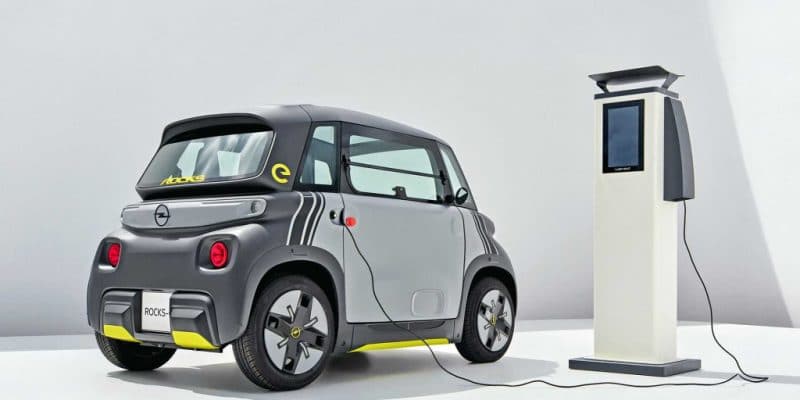The partnership between Morocco and Stellantis (formerly PSA) extends to the production of electric cars in the automotive group's plant in Kenitra. The new Opel Rocks-e, from the German brand Opel, will be marketed internationally.
The Moroccan government signs a new agreement with Stellantis, a multinational automotive group founded on January 16th, 2021, resulting from the merger of the French group PSA and the Italian-American Fiat Chrysler Automobiles. This is the expansion of an existing partnership between the kingdom and PSA which has enabled the construction of a Peugeot 208 and Citroen Ami assembly plant in Kenitra, 53 km from the Moroccan capital Rabat.
The Kenitra plant will also produce the Opel Rocks-e, an electric car recently launched on the international market by German carmaker Opel, a subsidiary of the Stellantis group. It is a short two-seater of 2.41 metres, which can be driven by young people from the age of 15, especially in Germany, with an AM1 driving licence. The Opel Rocks-e is actually a rebadged Citroën Ami dedicated to the Moroccan and international market.
Read also- MOROCCO: a production line for EV charging stations inaugurated in Benguerir
The electric car has a range of 75 kilometres, with a top speed of up to 45 km/h. According to Opel, this makes the electric car ideal for daily urban traffic, not only for young drivers, but also for those who want to travel emission-free and don’t want to spend a lot of time looking for a parking space at their destination.
According to Samir Cherfran, Stellantis Chief Operating Officer for the Middle East and Africa region, production of the Opel Rocks-e in Morocco will benefit from an ecosystem of local suppliers and a talented and diverse team at the Kenitra plant. The new electric car is equipped with a 5.5 kWh battery that can be recharged in 3.5 hours via a household outlet. This entry-level electric vehicle could therefore meet the current requirements for ecological mobility.
Jean Marie Takouleu







